2 August 2021
Helena Dalli
Komisarz ds. Równości Unii Europejskiej
Speech on the occasion of 2 August 2021, Holocaust Memorial Day for Sinti and Roma
Po raz trzeci wspominamy około pół miliona Romów i Sinti, którzy stali się ofiarami Holokaustu. Ta liczba przedstawia więcej niż ćwierć populacji romskiej tamtego czasu, zamordowanej przez reżim hitlerowski z powodu bycia innymi. Trudno jest sobie wyobrazić osobisty i grupowy strach, ból i cierpienie tych niewinnych ofiar. Ale musimy próbować zachować je w naszych sercach dzisiaj i na zawsze. Musimy podtrzymywać ich pamięć i czerpać naukę z lekcji jaką jest ta tragedia dla przyszłych pokoleń. Nie możemy dopuścić do tego, aby okrucieństwa z przeszłości się powtórzyły. Dzisiaj składam hołd wszystki tym, którzy odeszli. Napędzani rasistowską ideologią i obsesją zwierzchnictwa, naziści obrali na cel każdego, kto wydawał się aspołeczny lub był zagrożeniem dla ich rządów: Romowie i Sinti, europejscy Żydzi, ludzie niepełnosprawni, osoby LGBTIQ, komuniści, a nawet ludzie leworęczni. Godnym pożałowania jest fakt, że do dzisiaj tak niewiele osób wie o tych straszliwych okrucieństwach i o tym w jaki sposób były one dokonywane. W dalszym ciągu są ludzie negujący Holokaust lub umniejszający jego wymiar i zakłamujący fakty historyczne wokół niego. Dzisiaj, siedem dekad później, antycganizm, antysemityzm i inne formy nienawiści i rasizmu przybierają na sile. To napełnia nas wielkim zaniepokojeniem. Holokaust miał ogromny wpływ na społeczeństwa Europy. Przesiedlenia, stracone pokolenia, rozbite rodziny, brak uznania cierpień Romów i Sinti, były strasznym doświadczeniem. Dla nich, przekaz jaki niesie ze sobą Holokaust jest nadal aktualny, w obliczu retoryki antyromskiej, mowie nienawiści, stereotypach i uprzedzeniach oraz wykluczeniu. Byłam przerażona, kiedy dowiedziałam się niedawno o bestialskim ataku na obywatela romskiego przez policję. Europa została zbudowana na szacunku do fundamentalnych praw, a brutalność policji i przemoc przeciw godności ludzkiej nie mają w niej miejsca. Państwa członkowskie i władze muszą podjąć konkretne kroki przeciwko brutalności policji i selekcji na tle etnicznym, aby zapewnić odpowiednie metody działania pozbawione dyskryminacji bez względu na etniczną lub rasową przynależność, orientację seksualną, religię czy wierzenia. Europa musi bronić swoich mniejszości przed rasizmem i dyksryminacją. Rok temu zaprezentowałam 10-letni plan mający na celu zabezpieczyć równość Romów na poziomie innych członków społeczeństwa, socjalną i ekonomiczną integrację oraz udział w życiu politycznym, społecznym, ekonomicznym i kulturowym. Komisja Unii Europejskiej podjęła te starania i w marcu tego roku przyjęła rekomendacje dotyczące równości Romów, ich integracji i społecznego udziału we wszystkich państwach członkowskich, potwierdzając zaangażowanie do efektywnej walki z discriminacją Romów i w promowaniu integracji Romów w kluczowych sferach edukacji, zatrudnienia, zdrowia i mieszkalnictwa. Jestem pewna, że te kroki pomogą nam uporać się z długotrwałym brakiem sprawiedliwości, dyskryminacją I wykluczeniem Romów. Komisja nasila również działania w walce przeciwko rasizmowi poprzez agendę 2020-2025. Wezwałam państwa członkowskie do włączenia antycyganizmu jako osobnej formy rasizmu przy implementacji działań zawartych w tym planie. Będę rozszerzać listę przestępstw UE o przestępstwa z nienawiści oraz przestępstwa mowy nienawiści, na tle rasowym, religijnym, płciowym czy seksualnym. Użyję wszelkich dostępnych mi środków, aby zapewnić europejskiemu społeczeństwu równość, godne warunki i sprawiedliwość dla wszystkich. Musimy wyciągnąć wnioski z przeszłości, aby zagwarantować lepszą teraźniejszość i przyszłość. Nie dopuśćmy, aby cierpienia ofiar Holokaustu wśród Sinti i Romów nie poszły na marne, ani w tym, ani w przyszłych pokoleniach. Zbudujmy lepszą przyszłość dla wszystkich.
This figure represents more than a quarter of the roma population at the time, murdered by the Nazi-led regime for no other reason than their being different. It is hard to imagine the individual and collective fear, pain and suffering of these innocent victims, but we must have it in our hearts to try. Today and forever we must keep the memories alive and teach the lessons of this tragedy to the next generations. We must never repeat these atrocities of the past.
Today I pay tribute to all of those who perished, driven by a racist ideology and supremacy. The nazis targeted anyone they viewed as asocial or a risk to the regime. The Roma and Sinti people, the European jews, persons with disabilities, LGBTIQ-people, communists and even left-handed people.
It is regrettable, that to this day too few know about these terrible atrocities and how they were executed. And even now, many deny the holocaust ever happened or minimize and distort the historical facts around it.
Today, seven decades on anti-gypsyism anti-semitism and other forms of hatred and racism are on the rise once more. This is of great concern. The holocaust had a deep effect on European society displacements lost generations and broken families from minority communities. The lack of recognition of roma and tinti suffering has been profound and for them the legacy of the Holocaust continues today in the form of anti-roma rhetoric, hate speech and stereotypes, prejudices and exclusion.
I was horrified to learn about the recent case of police brutality against a roma citizen. Europe is built on the respect for fundamental rights and police brutality and violence against human dignity have no place within it. Member states and authorities must take firm action against police brutality and ethnic profiling and ensure that adequate and non-discriminatory police methods are applied, regardless of the ethnic or racial origin, sexual orientation or religion and belief. Europe must protect its minorities from racism and discrimination.
Last year i presented a 10-year plan to advance roma equality with all other members of society, social and economic inclusion and participation to political, social, economic and cultural life. The council of the european union followed up on this and adopted in March this year. A recommendation on roma equality inclusion and participation in all member states reaffirming our commitment to effectively fight discrimination against roma people and to promote roma inclusion in the key areas of education, employment, health and housing.
I am confident that these steps will help us to tackle the long-standing injustices discrimination and exclusion of the roma people. The commission is also stepping up the fight against racism through an anti-racism action plan for 2020-2025 and i have called on member states to include antigypsyism as a specific form of racism when implementing the actions presented in this plan. I will also look at expanding the list of EU crimes to all forms of hate crime and hate speech. Whether because of race, religion, gender or sexuality.
I will use all possible means at my disposal to ensure that European society is equal, humane and fair for all. We must learn from the past to guarantee a better present and future. Let us make sure, that the suffering of the Sinti and Roma Holocaust-victims is not lost on this or future generations and let us build a better future for all.
Biografie
Helena Dalli is the first EU Commissioner for Equality since December 2019. Her role is to deliver on the Union of Equality chapter within the Political Guidelines of President von der Leyen, by strengthening Europe’s commitment to equality and inclusion in all of its senses.
Prior to taking her role as Commissioner, Dalli held various political roles in Malta including Member of Parliament (1996 to 2019), Minister for European Affairs and Equality (2017 to 2019), and Minister for Social Dialogue, Consumer Affairs and Civil Liberties (2013-2017). She was also opposition Shadow Minister for public administration, equality, public broadcasting and national investments (1998-2013) and Junior Minister for Women’s Rights in the Office of Prime Minister (1996-1998). Dalli holds a PhD in Political Sociology from the University of Nottingham, and lectured in Economic and Political Sociology, Public Policy, and Sociology of Law at the University of Malta.
Statements 2021
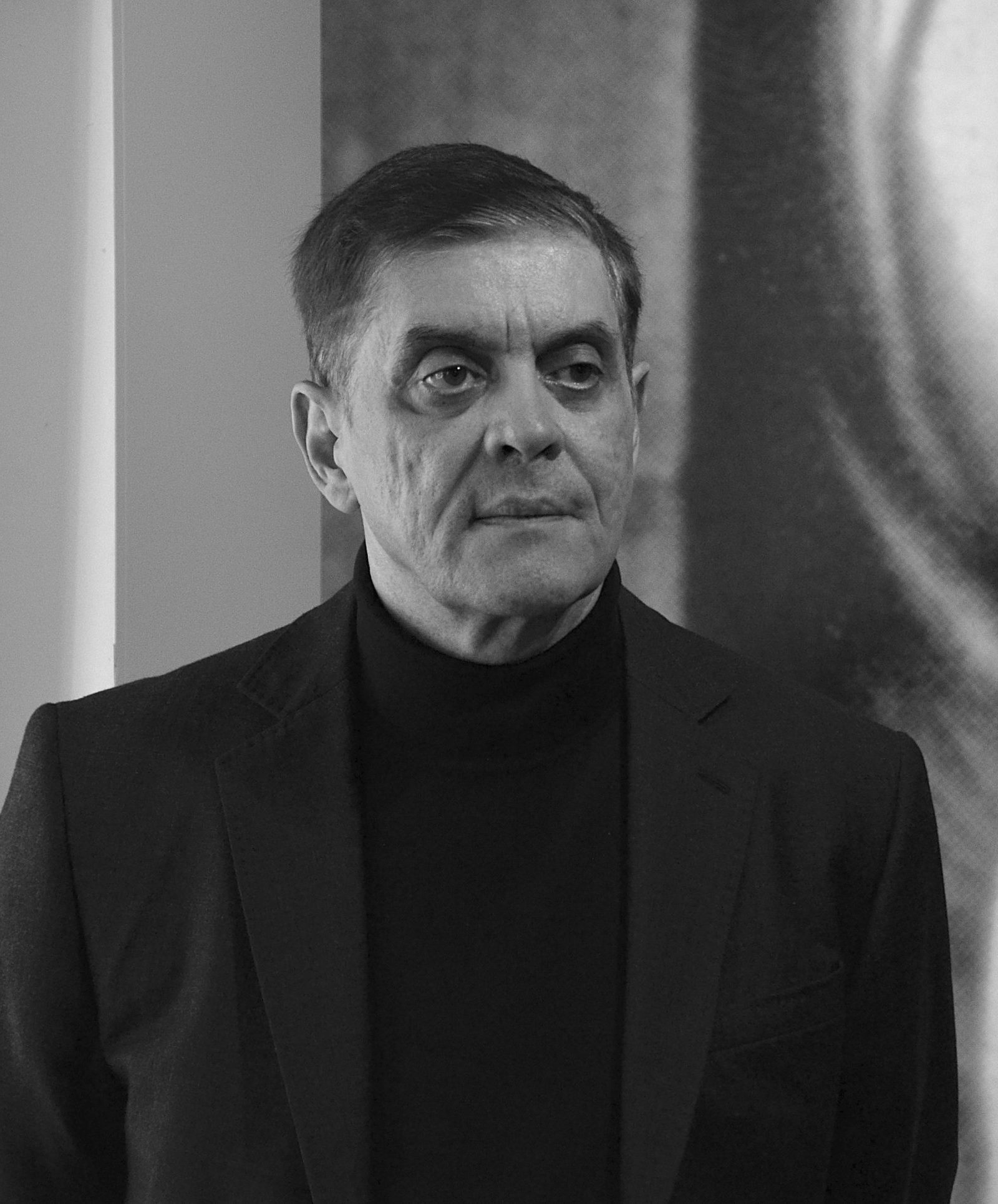
Romani Rose
Przewodniczący Centralnej Rady Niemieckich Sinti i Romów

Katarina Barley
Vice President of the European Parliament

Helena Dalli
Komisarz ds. Równości Unii Europejskiej
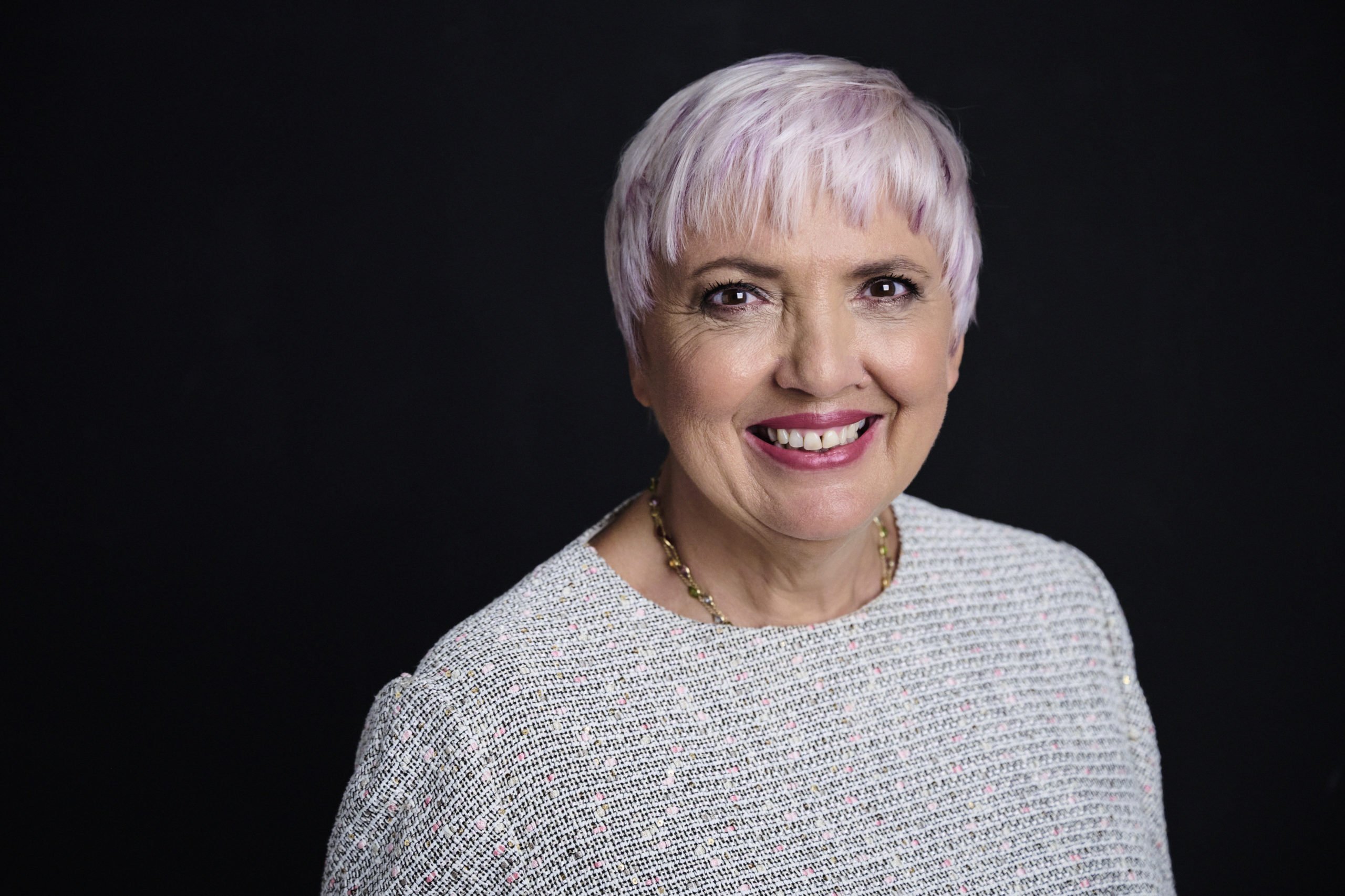
Claudia Roth
Vice President of the German Bundestag
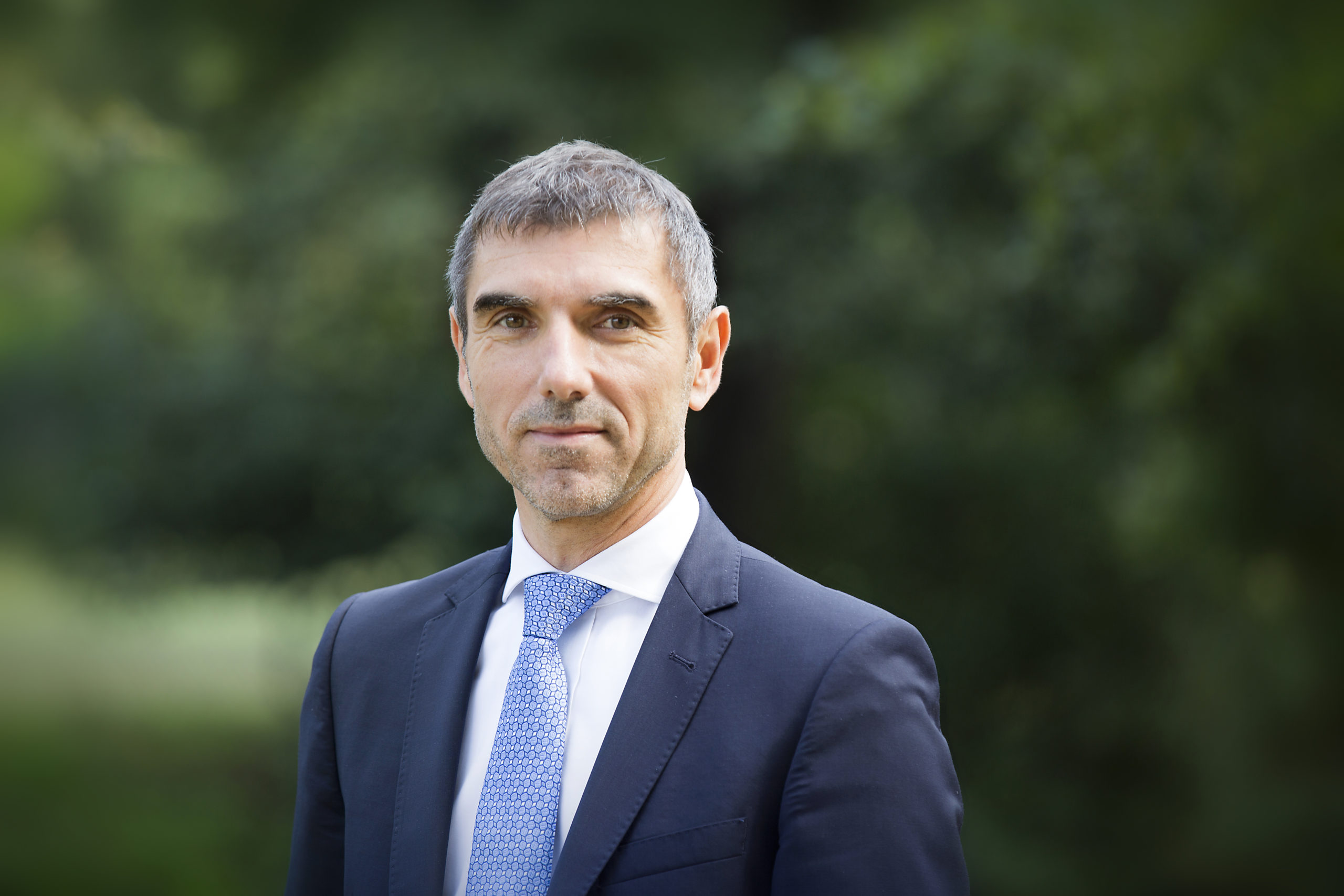
Paul Blokhuis
Dutch State Secretary Paul Blokhuis
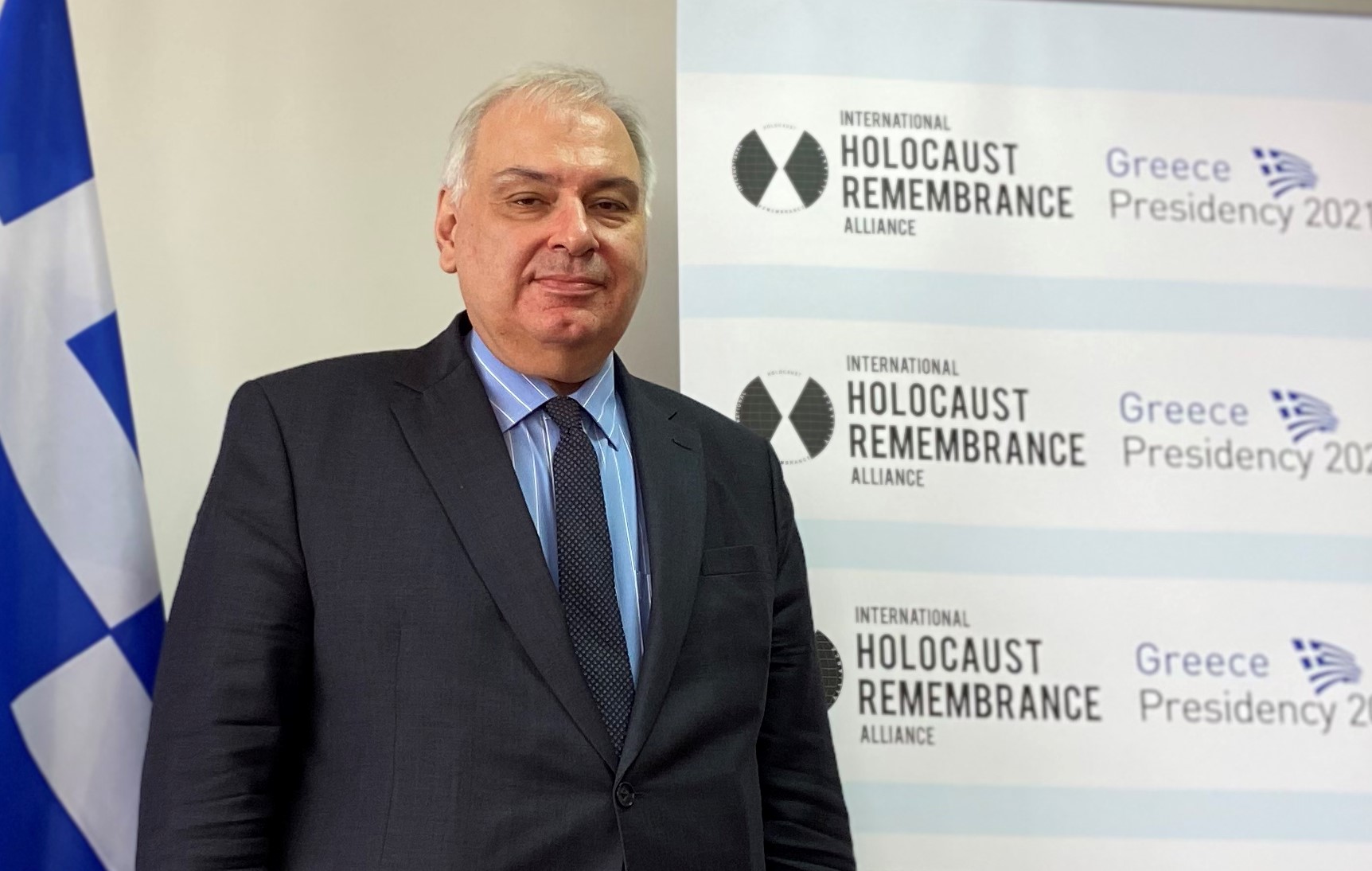
Chris J. Lazaris
Amb. Chris J. Lazaris, IHRA Chairman
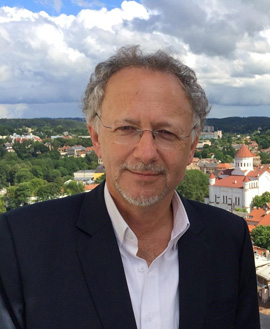
Fernand des Varennes
UN Special Rapporteur UN minorities
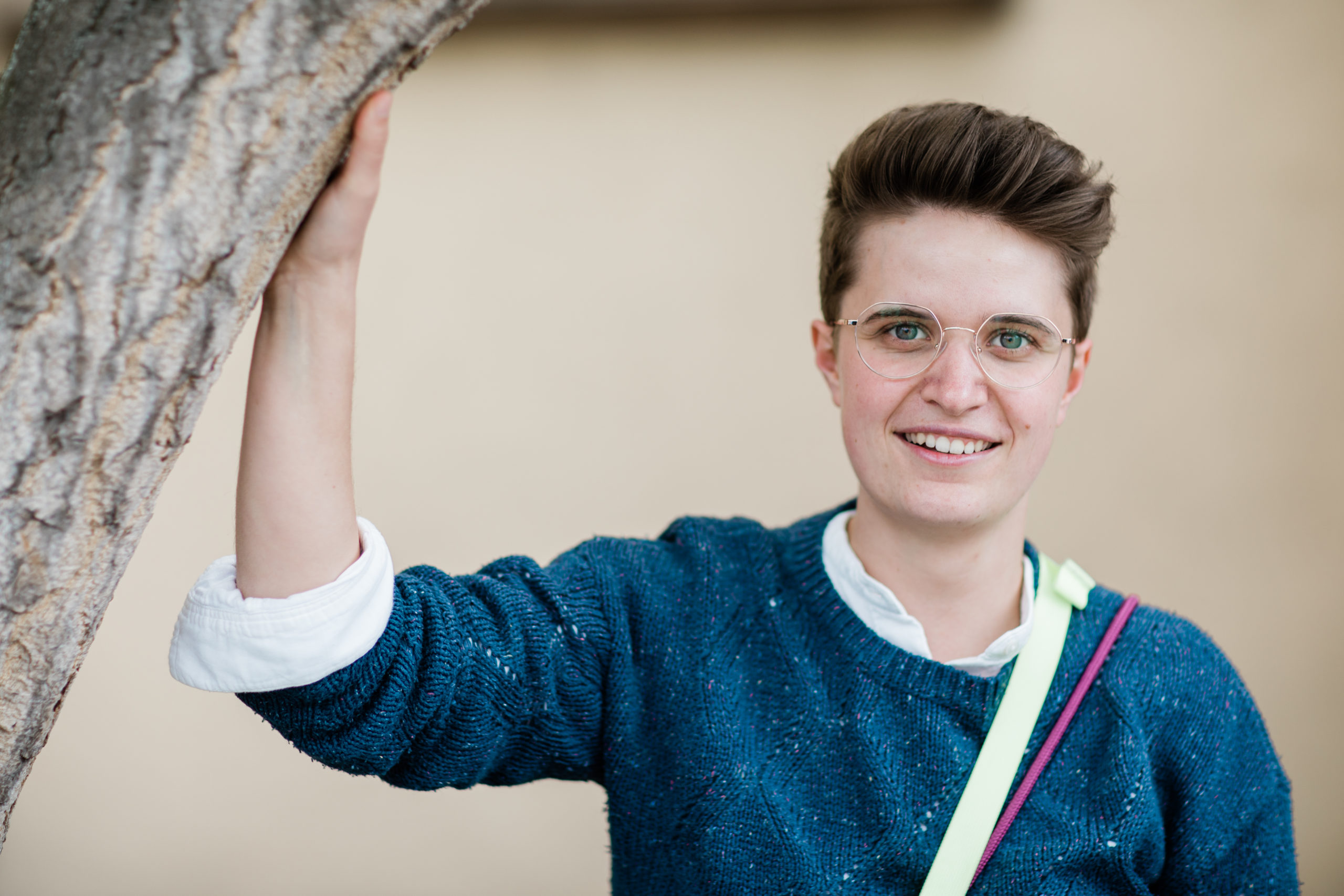
Anna-Nicole Heinrich
President of the Synod of the Evangelical Church in Germany (EKD)

Justin Trudeau
Prime Minister of Canada
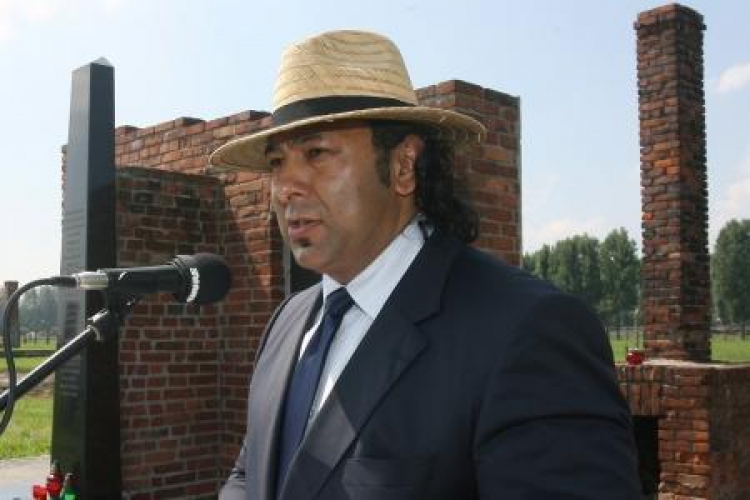
Roman Kwiatkowski
Chairman of the Association of Roma in Poland
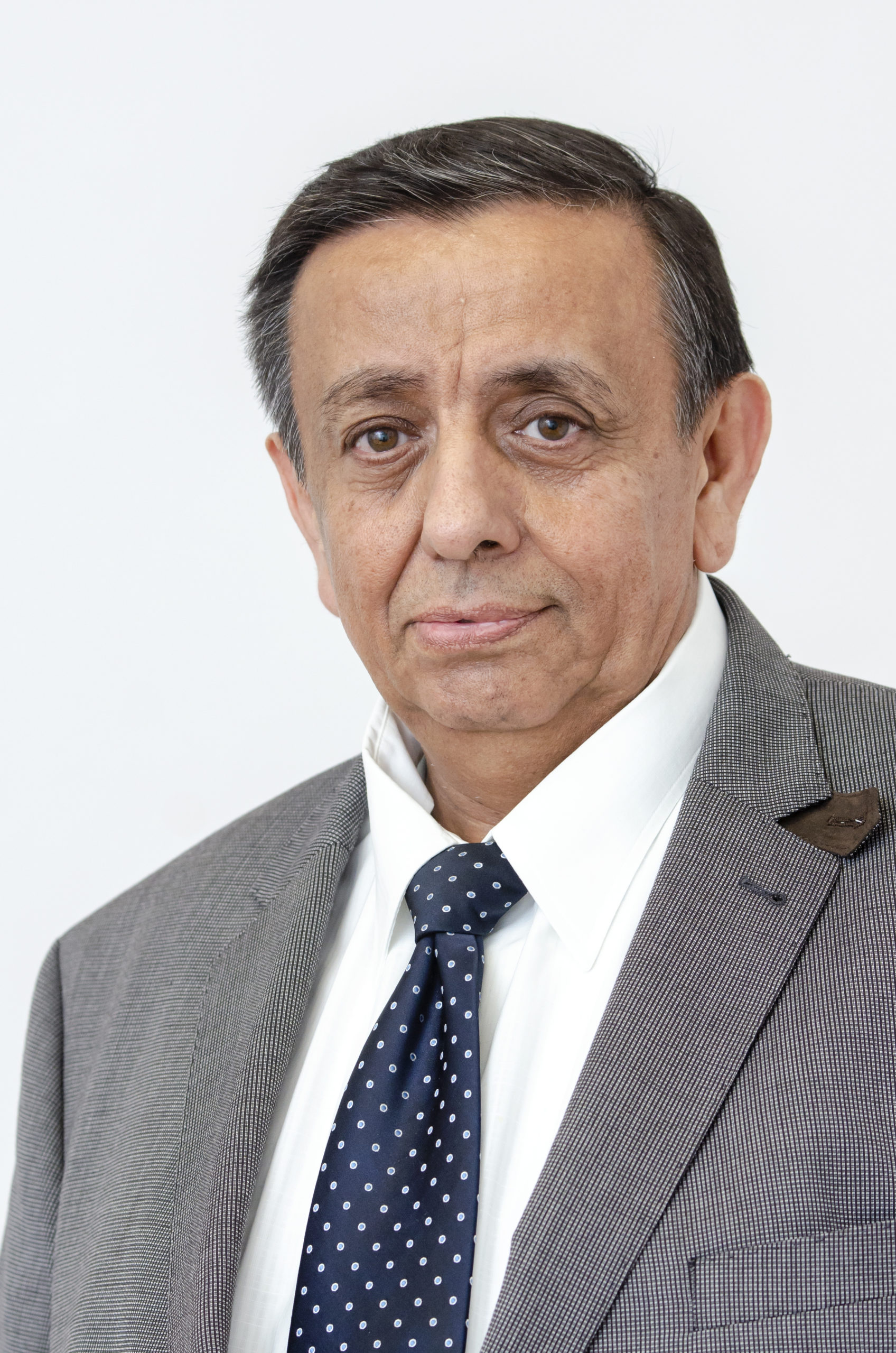
Erich Schneeberger
Deputy Chairman of the Documentation and Cultural Center of German Sinti and Roma and Chairman of the Association of German Sinti and Roma
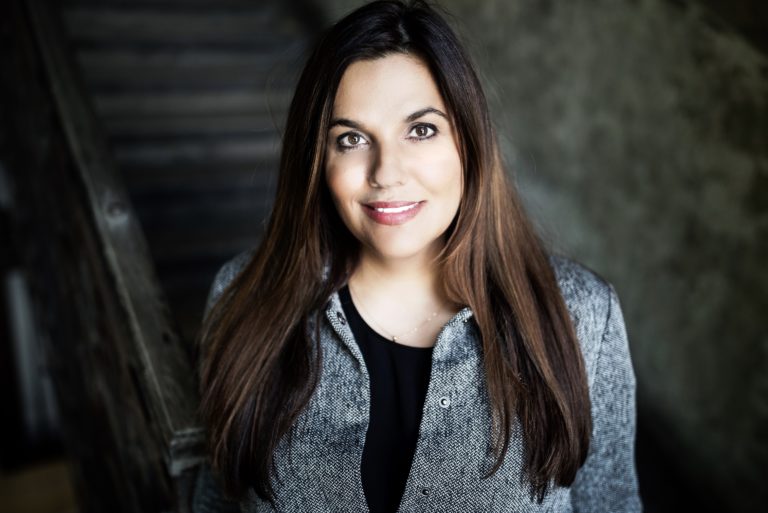
Timea Junghaus
Executive Director
European Roma Institute for Arts and Culture (ERIAC)
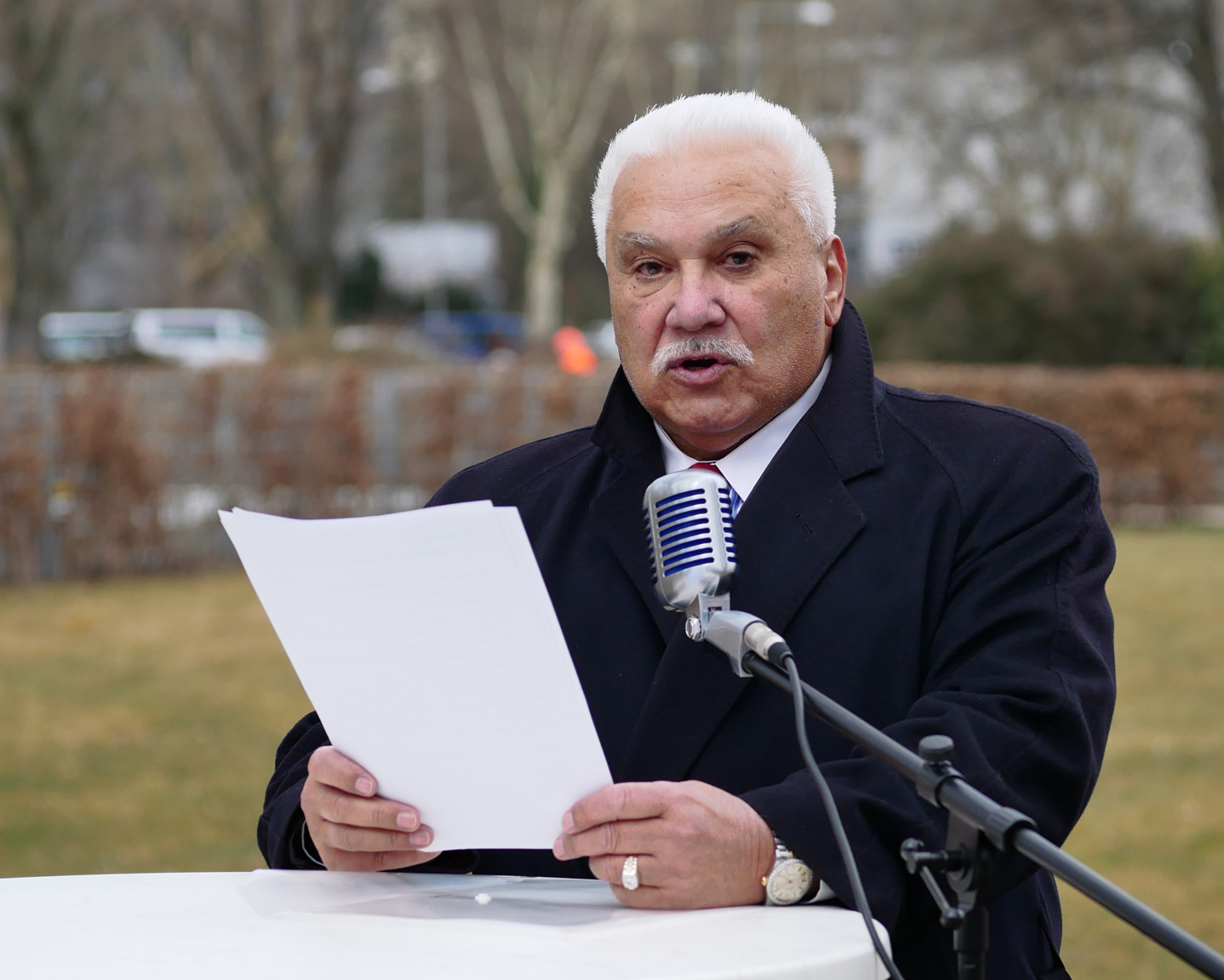
Adam Strauß
Chairman of the Council of German Sinti and Roma in Hesse
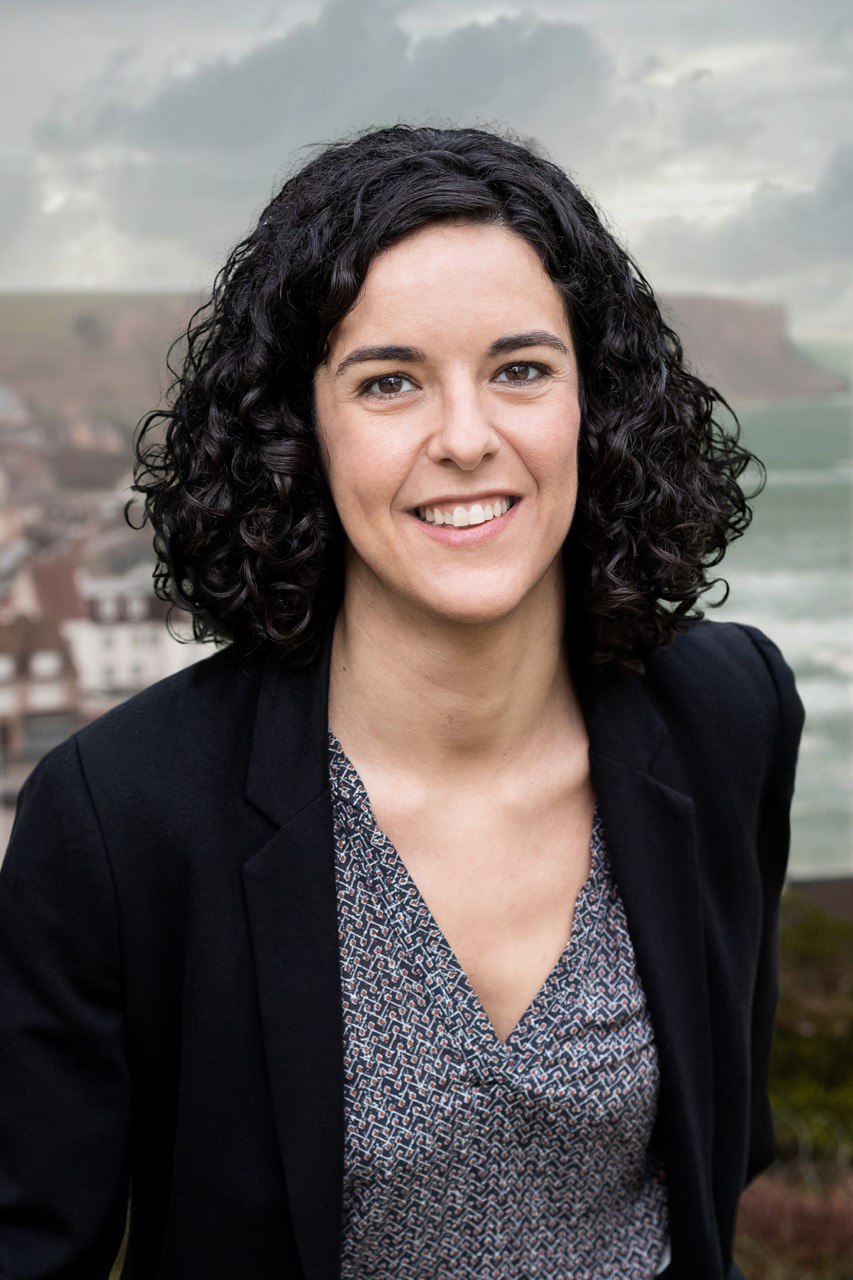
Manon Aubry
Manon Aubry, MEP
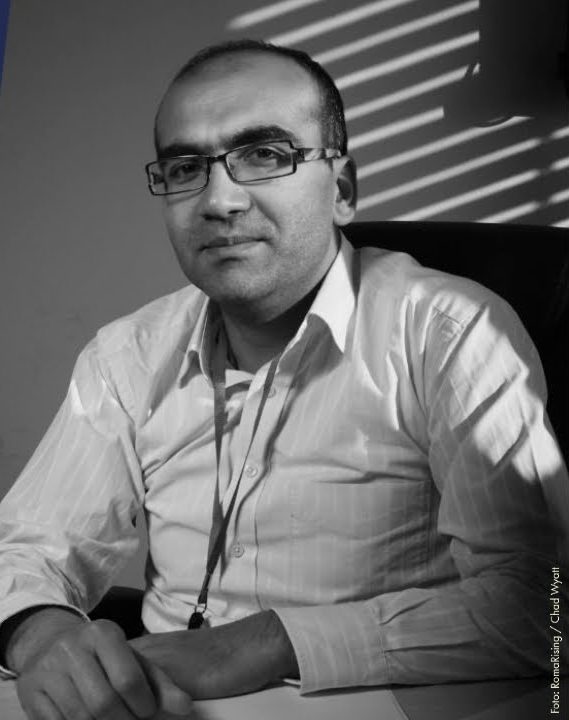
Adrian-Nicolae Furtuna
Historian at the University of Bucharest
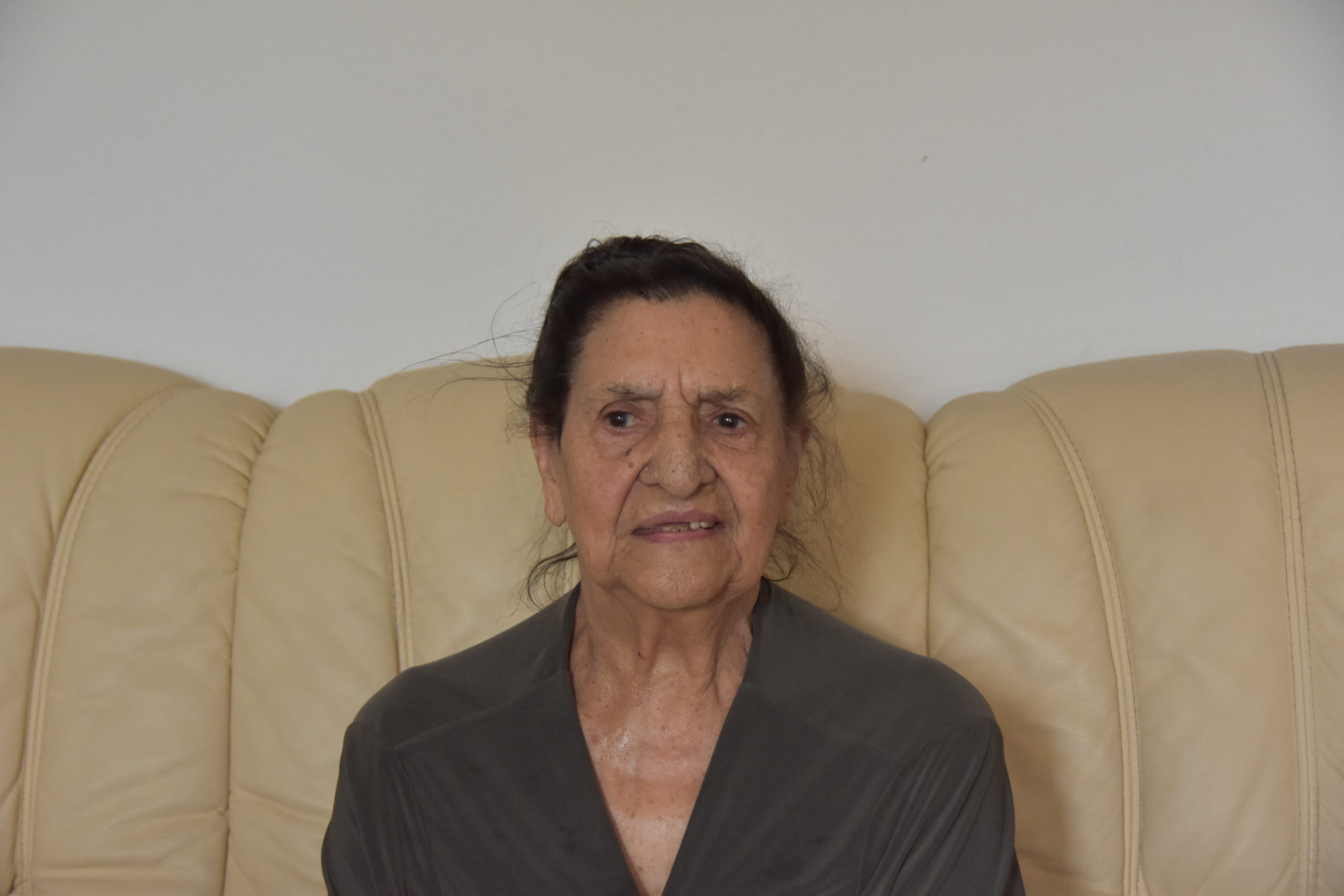
Philomena Franz
Holocaust Survivor

Angelina Kappler
German former Weinkönigin
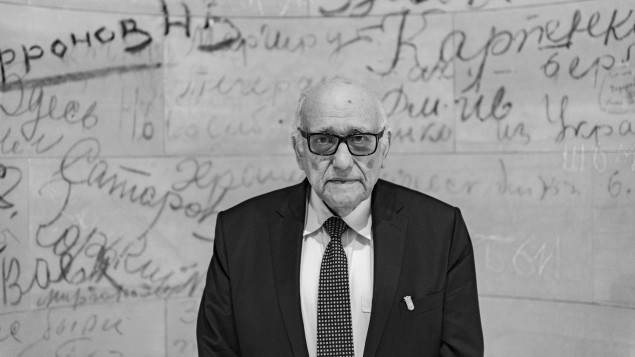
Marian Kalwary
Chairman of the Association of Jews,
Survivors and Victims of the Second World War
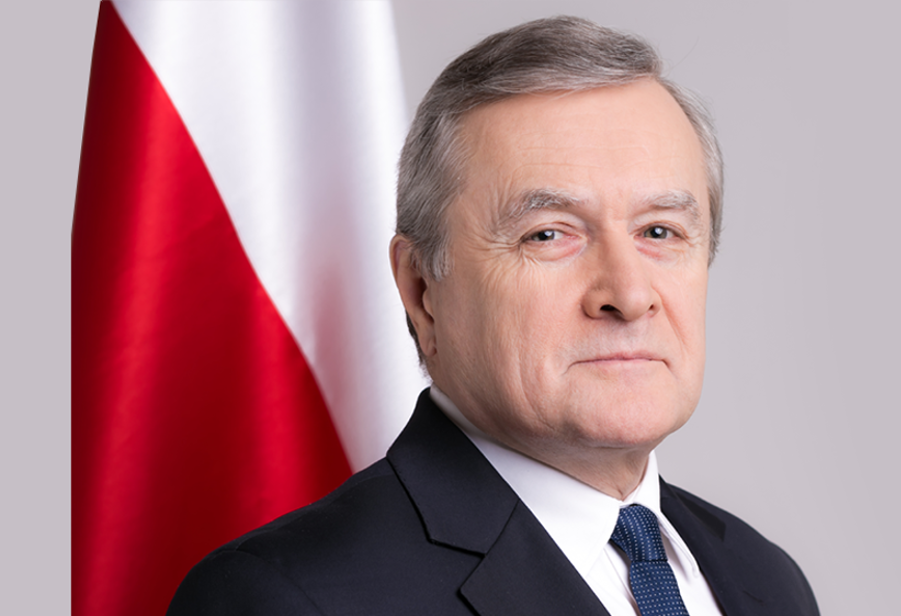
Piotr Gliński
First Deputy Prime Minister and the Minister of Culture and National Heritage of Poland

Izabela Tiberiade
Young Activist from Sweden

Ursula Krechel
Writer
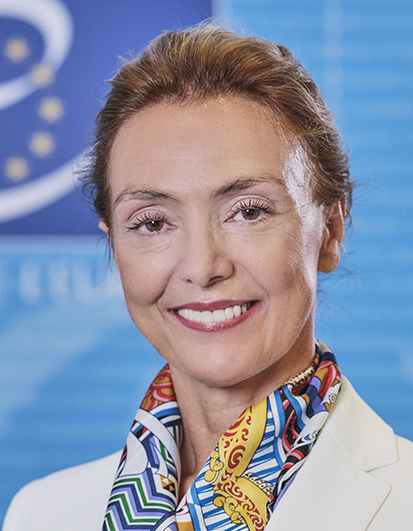
Marija Pejčinović Burić
Sekretarz Generalny Rady Europy
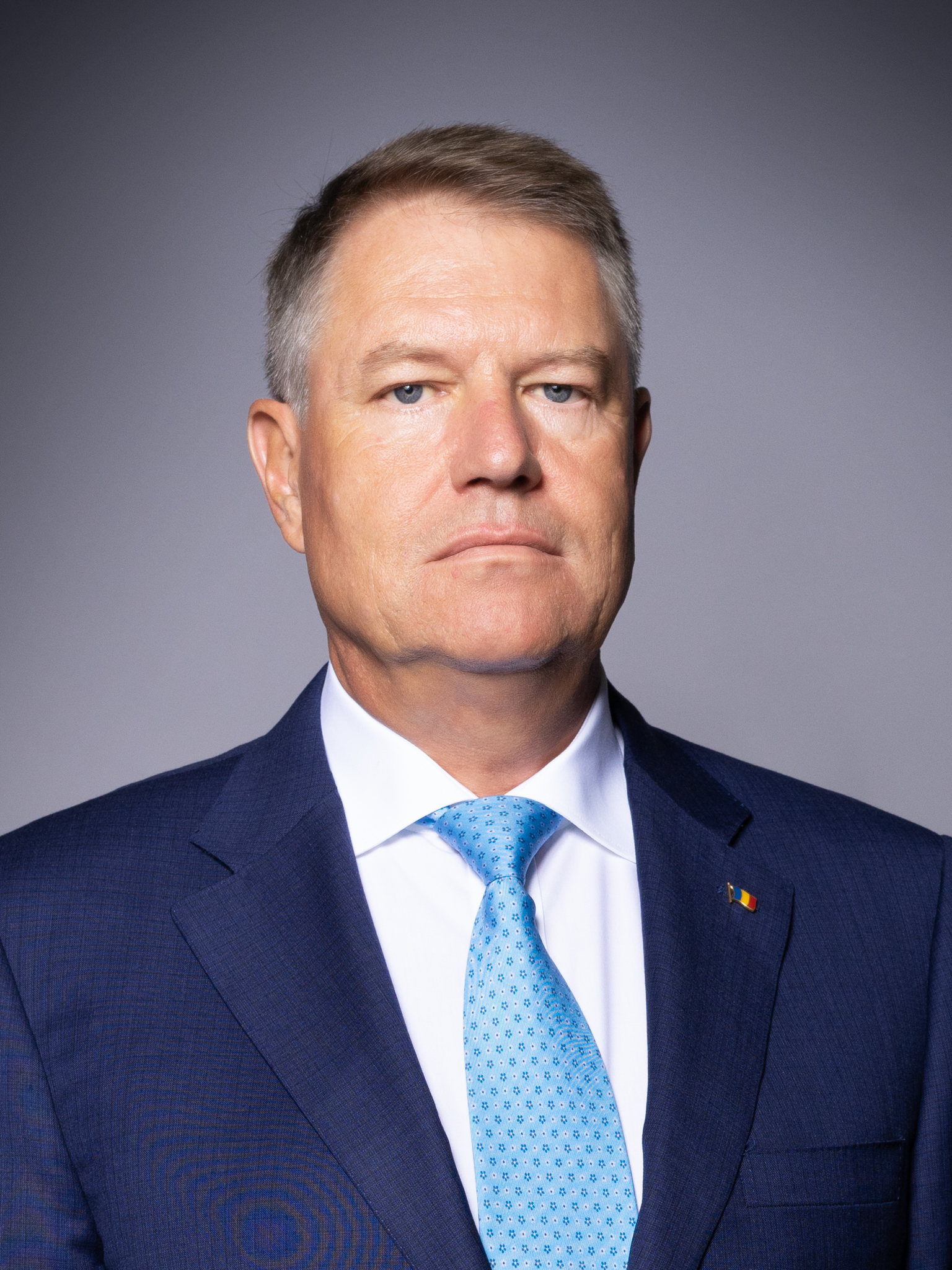
Klaus Iohannis
Prezydent Rumunii










